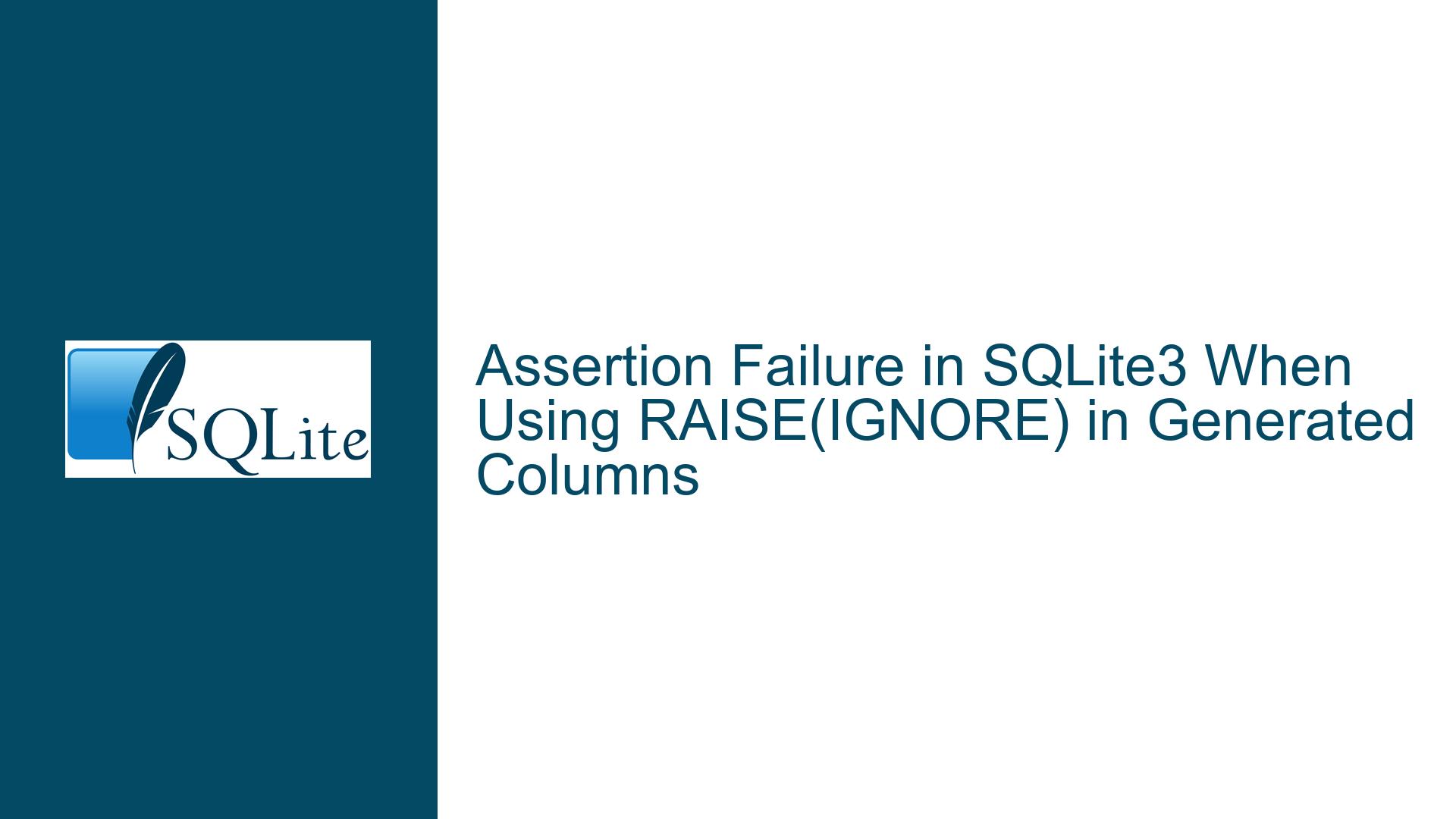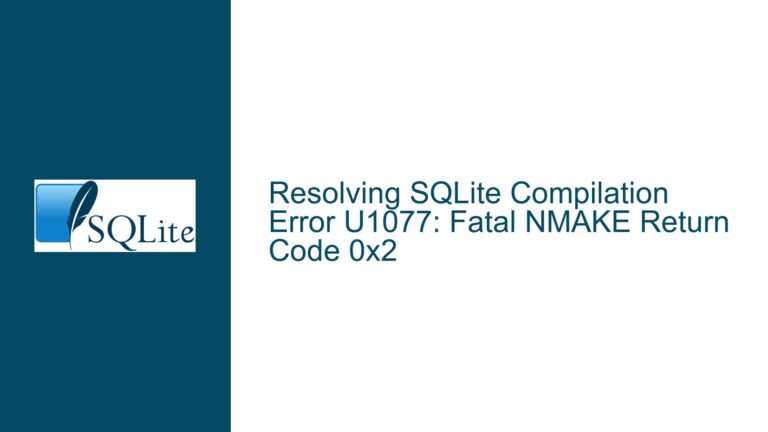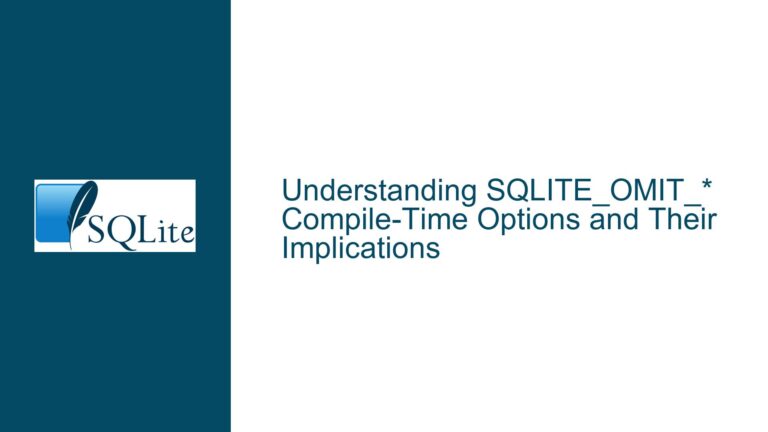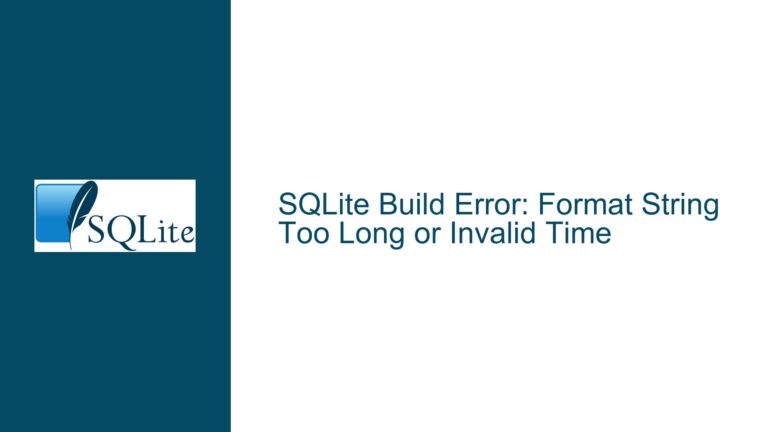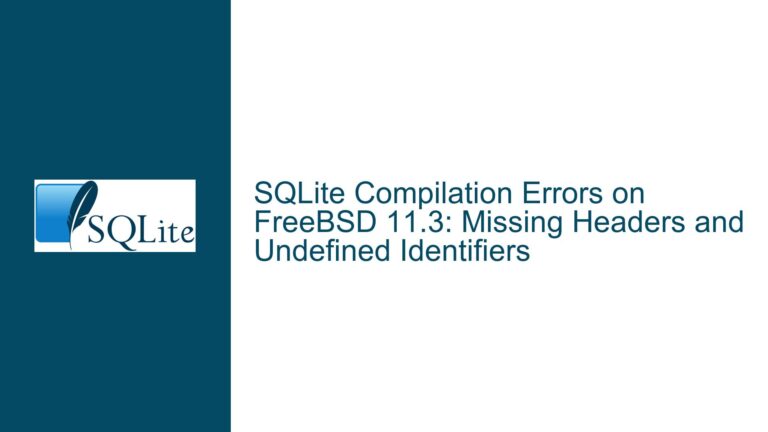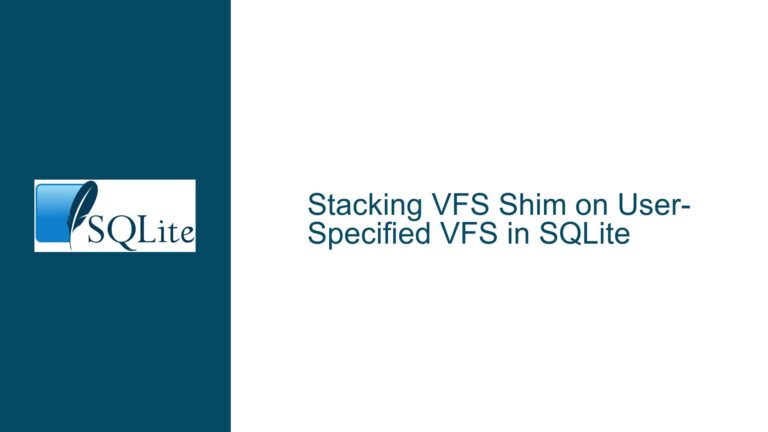Assertion Failure in SQLite3 When Using RAISE(IGNORE) in Generated Columns
Understanding the Assertion Failure in SQLite3’s RAISE(IGNORE) Implementation
The core issue revolves around an assertion failure in SQLite3 when executing a query involving a generated column that uses the RAISE(IGNORE) function. This failure occurs specifically in the sqlite3ExprCodeTarget function, where the assertion checks for valid values of pExpr->affExpr. The assertion expects pExpr->affExpr to be one of OE_Rollback, OE_Abort, OE_Fail, or OE_Ignore. However, the condition fails, leading to an abrupt termination of the SQLite process with a core dump.
The problem manifests in the following query:
CREATE TABLE v0(c1 INT, c2 AS (RAISE(IGNORE)));
SELECT * FROM v0;
When executed, this query triggers the assertion failure, as evidenced by the stack trace and the error message. The issue is particularly notable because it only occurs in debug builds of SQLite, where assertions are enabled. In release builds, the assertion is omitted, and the query executes without crashing, albeit potentially with incorrect behavior.
The root cause of this issue lies in the handling of generated columns and the RAISE(IGNORE) function within SQLite’s expression evaluation logic. The RAISE(IGNORE) function is typically used in triggers to suppress further processing of a row. However, its use in generated columns introduces a scenario that the SQLite engine was not fully prepared to handle, leading to the assertion failure.
The Role of Generated Columns and RAISE(IGNORE) in Triggering the Assertion
Generated columns in SQLite are columns whose values are computed from expressions rather than being explicitly stored. These columns can be either VIRTUAL (computed on-the-fly) or STORED (computed and stored at write time). The RAISE(IGNORE) function, on the other hand, is a special SQLite function used primarily in triggers to abort the current operation and ignore the row being processed.
When RAISE(IGNORE) is used in a generated column, it introduces a unique challenge for SQLite’s expression evaluation engine. The engine must handle the possibility that the expression for the generated column might abort the current operation, which is not a typical scenario for generated columns. This unusual combination of features exposes a flaw in the assertion logic within the sqlite3ExprCodeTarget function.
The assertion in question is designed to ensure that the affExpr field of the expression structure (pExpr->affExpr) contains a valid value corresponding to one of the supported conflict resolution actions (OE_Rollback, OE_Abort, OE_Fail, or OE_Ignore). However, the use of RAISE(IGNORE) in a generated column causes affExpr to hold an unexpected value, leading to the assertion failure.
Resolving the Assertion Failure: Steps, Solutions, and Fixes
To address this issue, it is essential to understand the underlying cause and implement appropriate fixes. The problem was introduced in a recent change to SQLite’s codebase, specifically in the optimization of generated column handling. The fix involves ensuring that the affExpr field is correctly set when evaluating expressions involving RAISE(IGNORE) in generated columns.
The first step in resolving the issue is to identify the specific commit that introduced the bug. This can be done using a bisect process, as demonstrated in the discussion. The bisect process revealed that the bug was introduced in a commit made four days prior to the report and was subsequently fixed in a later commit.
The fix involves modifying the expression evaluation logic to correctly handle the RAISE(IGNORE) function in generated columns. This includes ensuring that the affExpr field is properly initialized and validated before the assertion check. The fix also addresses the original issue that led to the introduction of the bug, which was a discrepancy in the handling of data types in generated columns when using indexes.
In addition to the code changes, it is important to update the test suite to include test cases that cover the use of RAISE(IGNORE) in generated columns. This will help prevent similar issues from arising in the future and ensure that the fix is robust.
For users encountering this issue, the recommended course of action is to update to the latest version of SQLite that includes the fix. This can be done by pulling the latest changes from the SQLite repository or downloading the most recent release. If updating is not immediately feasible, a temporary workaround is to avoid using RAISE(IGNORE) in generated columns until the fix can be applied.
In conclusion, the assertion failure in SQLite3 when using RAISE(IGNORE) in generated columns is a result of an oversight in the expression evaluation logic. The issue has been identified and fixed in the latest version of SQLite, and users are encouraged to update to the latest version to avoid encountering this problem. By understanding the root cause and implementing the appropriate fixes, developers can ensure the stability and reliability of their SQLite-based applications.
